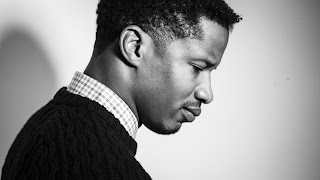By Sikivu Hutchinson
A
man of deep faith. That is the lofty
mantle actor/director Nate Parker has self-righteously ascribed to himself in a
Facebook post written in response to the
firestorm around his alleged rape of a fellow student at disgraced Penn State
University in 1999.
The details of the incident involving the unnamed
victim, Parker and his Birth of a Nation
writing partner Jean Celestin, have rocked
the Internet. Celestin was initially convicted
but the ruling was overturned on appeal four years later. Parker was acquitted partly because the jury
concluded that the victim couldn’t have been raped because she had had “consensual
sex” with him prior to the attack. According
to court documents, Parker and Celestin harassed and stalked the victim. After attempting suicide she sued the
university, alleging that it had not protected her from the harassment. In 2012, she died by suicide after battling
PTSD and depression, reportedly due to the sexual assault.
Parker's and Celestin’s status as athletes at a
university which has a history
of complicity in sexual assault is an especially ugly irony. Their commodity value to Penn no doubt
shielded them from the long jail sentence that almost certainly would have been
slapped on two ordinary young black men charged with raping a white woman.
Yet,
the phrase “man of faith” resonates with many black audiences. In this instance
it’s designed to elicit an unquestioning cultural solidarity that Parker does
not deserve.
The
implication that “faith” defines morality is the gospel for a majority of the
American public in general and African Americans in particular. Expressing regret for his youthful “carelessness”,
Parker wrote that “there is morality; no one who calls himself a man of faith should
even be in [that] situation”. Presumably a “man of faith”, one who adheres to
the bible (with its prescriptions for the subordination and rape of women,
damnation of gays, and murder of infidels) would have held himself to a higher
standard of conduct.
For sexual
assault survivors, the phrase is both bludgeon and vise.
How many times has a “man of faith” used his
position as a respected community leader to sexually abuse a child? How many times has a black girl been told by
a man of faith that her life, her voice, her body, are less than zero in the
face of violent male domination and control? And how many times have queer
youth been gutted by the tale that men of faith can’t rape amoral gay, lesbian
and trans folk?
Parker’s cynical manipulation of this term is repugnant,
an affront to all of the sexual abuse victims who have been crushed, silenced
by its use. His retrospective plea for “empathy”
to his younger self is a politically expedient smokescreen. It banishes all those who’ve been brutalized
into submission because the adults in their lives—mothers, fathers,
grandparents, teachers, law enforcement, counselors and other authority figures—have
told them it’s improper to question the moral authority and righteousness of “men
of faith”.
In his statement Parker also invokes his identity as
a father and husband. But would he look the
other way if one of his five black daughters—in a nation where approximately
40% of young black girls are raped or sexually assaulted by someone they
know and trust—were victimized by a man who trotted out his faith as a cover
for his actions?
According to early reviews, The Birth of a Nation includes a scene depicting the graphic rape
of Nat Turner’s wife. Commenting
on the glut of Negro slave and servant movies a few years ago, bell hooks remarked that she was “tired of the naked, raped
black female body” being used as a space of projection for white and black male
subjectivity. Here, black women’s bodies become vehicles for exploring what
really matters; the boundlessness of black male pain. Thus, it is profoundly troubling, but not
surprising, that Parker would depict the brutal institutional rape of African
American women under slavery then have the gumption to philosophize about his faith-inspired
empathy for the dead rape victim he stalked, harassed and victim-shamed. This ardent man of faith has not connected the
dots between his own patriarchal privilege, heterosexism (Parker has stated
in the past that he would not play a gay character in order to “preserve the
black man”) and American rape culture. In light of these revelations, his Nate
Turner retelling will be read by many of us survivors as yet another instance
in which cis-het black men are redeemed as proper stewards, keepers and
protectors of defiled black femininity in that epic time of “celluloid slavery”—one
which allows good black men of faith in contemporary America to deflect on
their own complicity in normalizing sexual violence.







